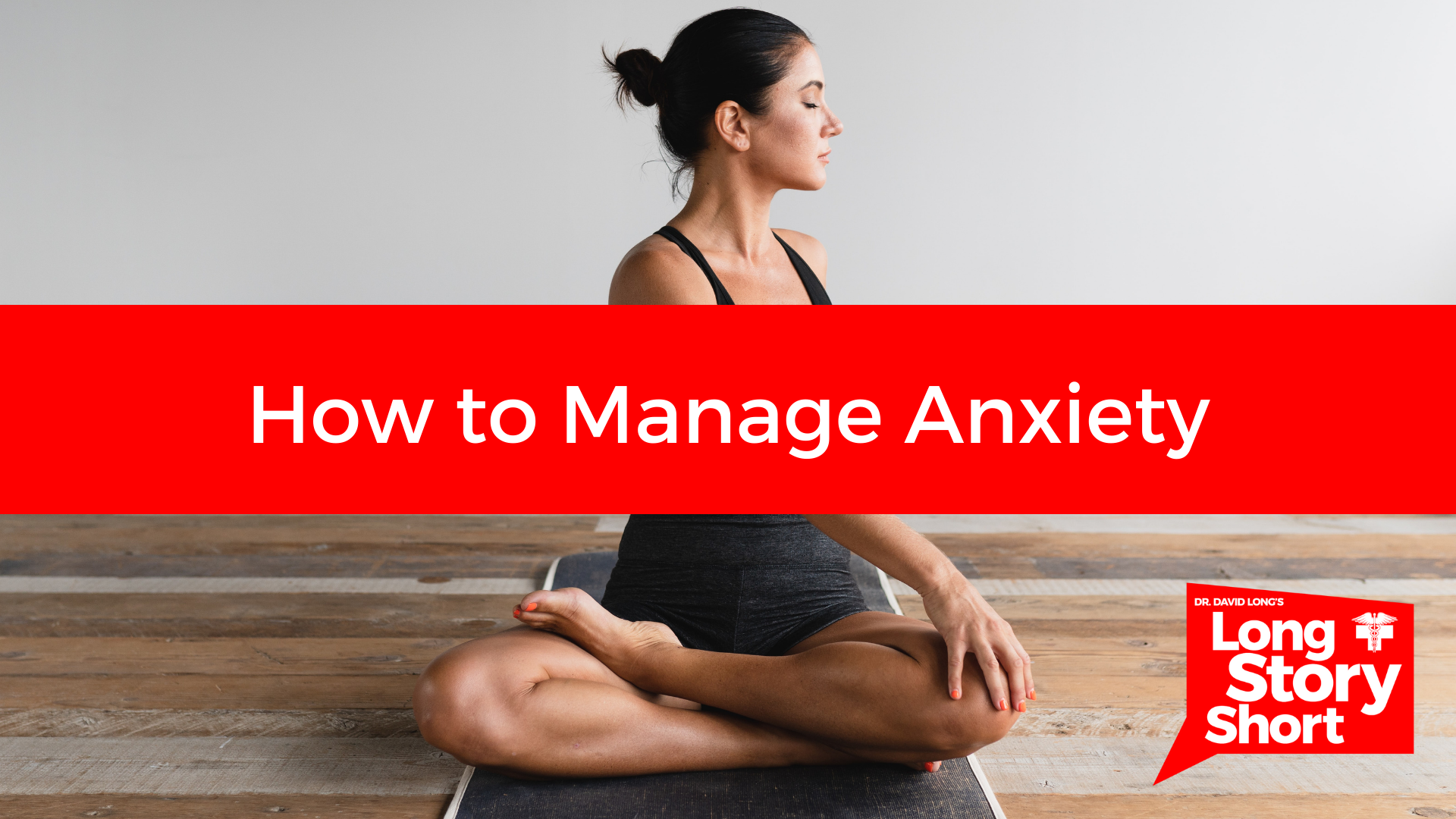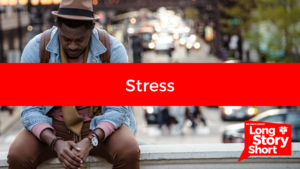How to Manage Anxiety Summary
• Anxiety is a real problem that many people face.
• It is important to get help from a doctor if you think you may have anxiety.
• There are ways to manage anxiety without making it worse, such as exercise and self-talk.
• If these methods do not work, there are medications that can be taken for anxiety. However, some of these medications can make the problem worse in the long run.
• It is important to learn from your experience with anxiety and not miss the lesson that it has to offer
Full Text
We’ve all had episodes in our lives where we experienced anxiety. Some people have some butterflies in their stomach. Other people may have a little trouble sleeping. Some people have real, chest pain, dizziness, headaches, abdominal pain, diarrhea, nausea and vomiting. These are all real, tangible physical symptoms. And oftentimes our mind immediately goes to the worst. I’m having a heart attack or a stroke, or I just know it’s cancer. But I would submit to you that there’s often a better explanation for some of those symptoms.
I’m Dr. David Long. I’d like to spend a few minutes talking to you about anxiety today and how to manage it. So I think the first thing that we need to do if we’re going to speak about anxiety is recognize it for what it is. So many times we see patients who are just absolutely convinced that their abdominal pain must be cancer. That they’re headache is quite clearly a stroke, and I spend a lot of time trying to talk them down to help them understand. Here’s why you’re not having a stroke. Here’s why you’re not having a heart attack.
Now let’s get to the real problem – the anxiety that’s driving those symptoms and fix that. So I would encourage you whether you recognize it as anxiety or if you don’t, but you’re concerned about these symptoms. Get to your doctor, listen to them. Take their word for it. If they’re telling you that that’s not an end of life situation. For reasons A, B and C, they probably know what they’re talking about.
Number two. When we’re treating anxiety, we have to be very careful to help make it better without making it worse. What do I mean by that? What I mean is that for someone with anxiety, alcohol will work and it will make it worse. Heroin would work and make it much worse. We want to make it better without making it worse. And I think the best place to start to accomplish that is to take lifestyle approaches when we have anxiety. If we can try self talk to take those negative thoughts and put a positive spin on those thoughts, that’s very helpful for managing our anxiety. Exercise: we need the release of endorphins in the decrease of stress hormones that comes with exercise. That’s paramount to keeping our anxiety at manageable levels. We need to be careful of what’s in our diet. If we’re eating whole foods, fresh fruits and vegetables, fewer highly processed foods and sweeteners and sugar. Those are things that can make our anxiety worse.
But when it comes down to it, it may be that your anxiety, in spite of doing all of those healthy things, is still at a really uncomfortable level. You, maybe someone who just kind of lives at the anxiety level, being very high, intrusive into your life. Or you maybe someone whose anxiety is just a little bit high, but spikes from time to time where you’re just not even functional. I’ve had patients before whose anxiety got so bad they couldn’t go to work. They could hardly leave the house. They couldn’t engage in their friendships and their relationships and their hobbies. And you can see how being out of their normal routine out of their normal relationships could make it so much worse. For those patients, yes, we need to address exercise. We need to address their diet. We need to have them in counseling, but they may also need some medication. Maybe it’s temporary. Maybe it’s long term. The truth is, we have enough good data from long term studies from safe anxiety medicines to know that it’s okay if a patient requires those medications for a long period of time.
When we discuss medications for anxiety, I put them into two broad categories. There are those that we take every day so that it will help manage our anxiety on the long term. And then there are others that we take occasionally when our anxiety spikes, and we need something in the moment to help bring down our anxiety levels. And the truth is, the problem with treating anxiety comes with that group. Zannex, for instance. Clonazepam, Klonopin, Valium. These are all great anxiety medicines, but they work so well that the person takes it, their symptoms are immediately better, and so their brain says, Ah ha! I have found what I need to treat my anxiety. Well, I often discuss with these patients that that is really no different than me giving someone pain medication for strep throat.
If that patient with a terrible sore throat came in and I said, “My goodness, that looks terrible, here, take this pain medicine.” And they took it, then 30 minutes later they say, “Dr. Dave, he’s so great he fixed my sore throat.” Have I done anything helpful for that patient? I’ve treated their symptoms, but meanwhile, the problem’s getting worse. When we use medications like Xanax or Klonopin or Valium or some others in that category, what we do is briefly help the symptoms, and meanwhile the problem gets worse. So what we need to be careful to do is, while those may have a temporary role just like pain medicine for strep throat, it’s not unreasonable. But it is if that’s all we do, we have to be careful that we balance that with a more appropriate medication that is safer for us to take on a regular basis.
The example that I give to patients is– with that strep throat patient, this would be like an antibiotic. It’s the right thing to do. But you may not feel better the first or second or even third day, but we know that that’s gonna be what actually fixes the problem. So when you go talk to your doctor and they start mentioning medications as a treatment approach for your anxiety, be sure to ask them, “Is this something that’s treating the symptoms, or is this something that’s gonna help treat the heart of the problem and thereby the symptoms would improve?”
Lastly, and perhaps most importantly, one of the things that can help us endure a season of miserable anxiety, is for us to be sure to not miss the lesson. You see, a wise person once wrote that mountain tops are great for the views, but the fruit grows in the valley. When life is kicking you in the stomach, when you’re miserable with anxiety or even depression, we need to recognize that during those times, we grow. We can grow in our understanding of ourselves. We can grow in our spirituality, and we can develop some mercy and some compassion for other people who have been in similar seasons. And when we come out of that season, assuming we didn’t miss the lesson, that we didn’t miss the fruit, the growth that’s available there, we can be more useful to other people and more useful to ourselves when we find ourselves in a similar valley.
So if we put all this together recognizing it, making it better without making it worse and being sure not to miss the lesson, we can make anxiety bearable and treatable. If you’d like any more information about anxiety, we’ve provided a free downloadable resource here on the page. Download it, share it, and If you have any other questions, please feel free to give us a call.




 and then
and then